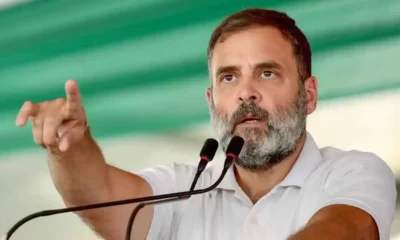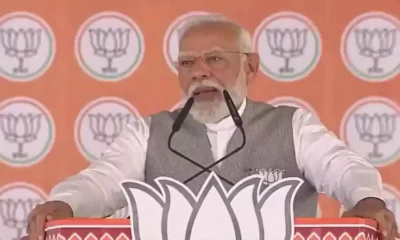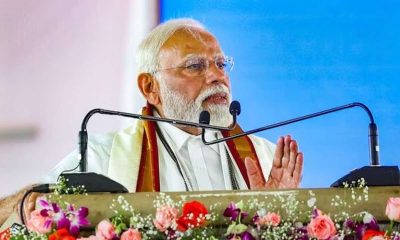Top Stories
Rahul Gandhi stopped from entering temple in Assam, asks what crime he has committed
On Monday, Rahul Gandhi said that he was not allowed to visit Batadrava Than in Assam and organised a sit-in protest. He added that he was authorised to attend the shrine.
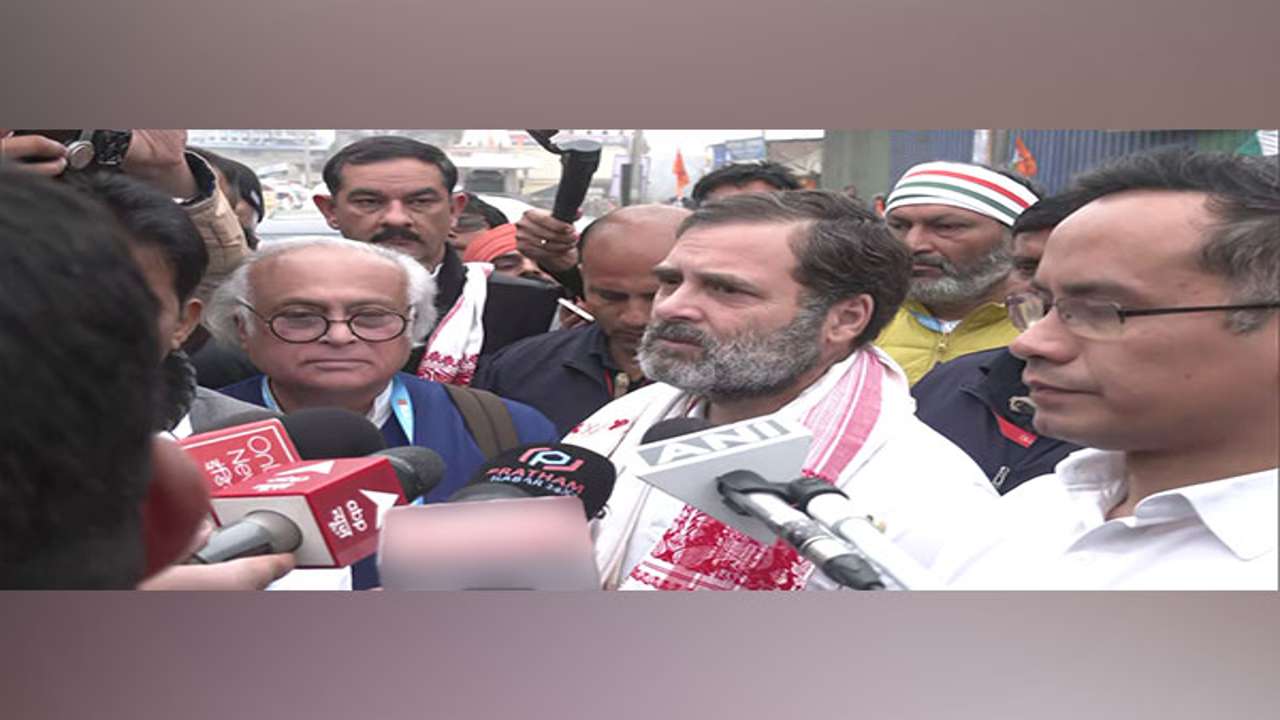
Rahul Gandhi and other Congress leader held a sit-in in Nagaon, Assam, on Monday, claiming they were denied access to Batadrava Than, the birthplace of the state’s social reformer, saint Srimanta Sankardeva. Authorities then announced that they had given the MP and MLA for the area permission to visit the temple.
Currently on his Bharat Jodo Nyay Yatra in Assam, the Congress leader further said that he was refused admission even though he had clearance to do so.
Rahul Gandhi was seen in a video asking a security guard why he was being stopped.
“I am being stopped from going to the temple,” Gandhi added. They were allowed to go earlier, but now they are refusing. It appears that only one individual is allowed entry to the shrine these days. All he was doing there was raising his hands in prayer.
Senior Congress leader Jairam Ramesh commented on the development today, saying, Rahul Gandhi wanted to go there. Since January 11, they have been attempting, and two of their MLAs have met with management to discuss the same.
They were committed to arriving there on January 22 at 7 a.m. They assured us that we would be quite welcome. However, we were abruptly informed yesterday that we couldn’t visit there until 3 PM, according to Ramesh.
The state government is exerting pressure in this way. We’ll make an effort to visit, but travelling there after 3 p.m. is quite challenging because we’d have to go a longer distance, the top Congress leader said reporters.
The management committee of Batadrava Than announced on Sunday that Rahul Gandhi will be permitted to access the premises on Monday after 3 p.m.
The Pranpratishtha of the Ram Temple is tomorrow, and a large number of devotees will visit the Than. In addition, other events have been planned off the Than property, drawing thousands of followers. Rahul Gandhi’s visitation schedule has been set for after 3 pm as a result, as per the decision made during the meeting, according to a committee statement.
The Congress claimed that its leaders were attacked by BJP supporters during the Bharat Jodo Nyay Yatra, with Rahul Gandhi, who was heckled by a crowd chanting Jai Shri Ram and Modi, Modi, saying that his party is not afraid of the prime minister or the chief minister of Assam. Political tensions in the state were high on Sunday, the eve of the Ram temple consecration ceremony in Ayodhya.
2024 Lok Sabha Elections
Priyanka Gandhi calls PM Modi a shahenshah who lives in castles and can never understand the plight of the common man
Priyanka Gandhi said on the other side is the shehanshah, Narendra Modi, who lives in a palace. She asked the people if they have watched him on television? She said not a single speck of dust is visible on his face. She asked how can PM Modi understand their problems?
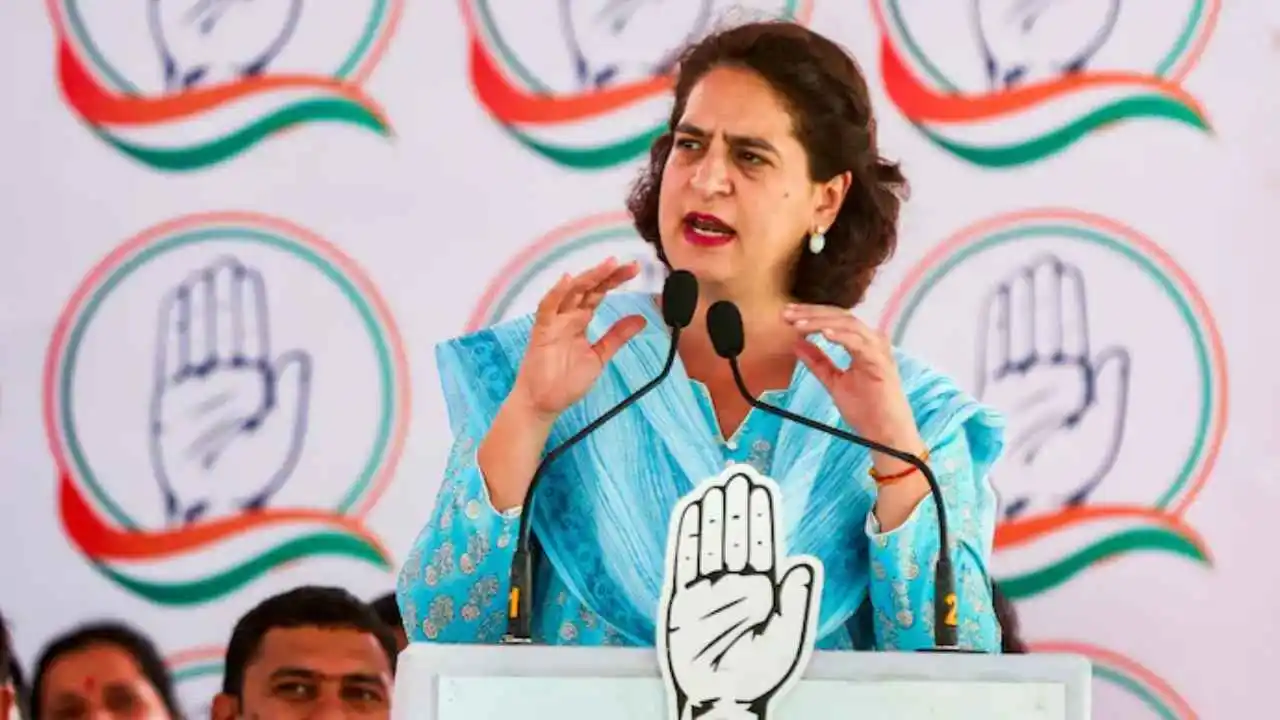
Congress leader Priyanka Gandhi took a dig at Prime Minister Narendra Modi for calling her brother and Congress leader Rahul Gandhi a shehzaada. She was speaking at an election rally in Gujarat on Saturday where she called PM Modi a shehanshah.
She said BJP calls her brother Shehzada. She wanted to tell BJP how this shehzada walked 4,000 km from Kanyakumari to Kashmir to listen to people’s problems. The Congress leader added that Rahul Gandhi met sisters, brothers, farmers and labourers and asked them what problems they were having. Priyanka Gandhi was speaking at a rally in Banaskantha in Gujarat.
Priyanka Gandhi said on the other side is the shehanshah, Narendra Modi, who lives in a palace. She asked the people if they have watched him on television? She said not a single speck of dust is visible on his face. She asked how can PM Modi understand their problems?
Priyanka Gandhi attacked Prime Minister Narendra Modi when he repeatedly called Rahul Gandhi a shehzada of shahi parivar. He was addressing a rally in Gujarat on Thursday where PM Modi had targeted Congress leader Rahul Gandhi and said Pakistan is eager to make the shehzada of the grand old party India’s next Prime Minister as the country’s enemies want a weak government at the centre.
Priyanka Gandhi further attacked PM Modi and said Gujarat gave PM Modi respect and self-respect and gave him power, but he is seen only with big people. She asked if anyone had seen PM Modi meeting a farmer?
She further pointed out that farmers are protesting against the black laws. She said hundreds of farmers are martyred, but the Prime Minister does not even bother to go and meet them. She said just before the elections come and they feel that they will not get votes, then PM Modi changes the law.
India News
Rahul Gandhi writes to Karnataka CM over Prajwal Revanna sex scandal, urges him to provide utmost assistance to the victims
Gandhi requested Siddaramaiah to kindly extend all possible support to the victims. He wrote that everyone has a collective duty to ensure that all parties responsible for these heinous crimes are brought to book.
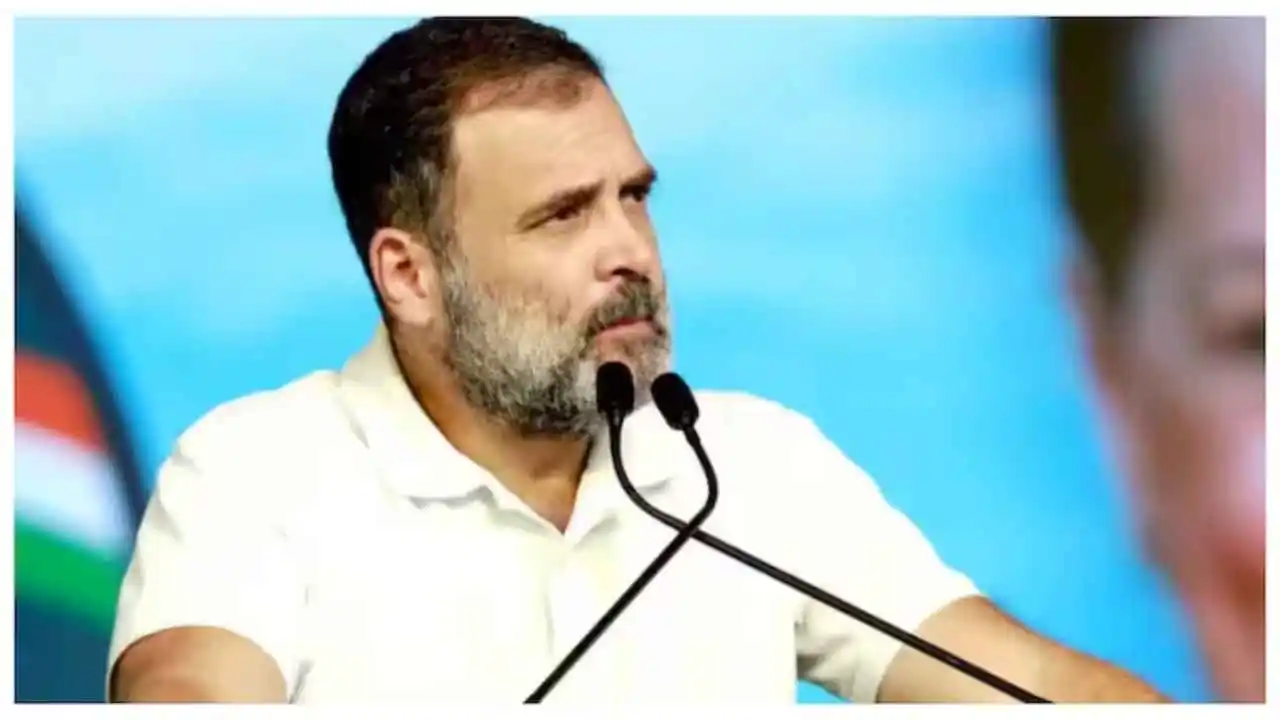
Congress leader Rahul Gandhi on Saturday wrote to Karnataka CM Siddaramaiah regarding JD(S) leader Prajwal Revanna sex scandal. In his letter, Gandhi condemned the actions of Revanna and requested the Karnataka Chief Minister to extend all possible support to the sexually harassed women.
Gandhi requested Siddaramaiah to kindly extend all possible support to the victims. He wrote that everyone has a collective duty to ensure that all parties responsible for these heinous crimes are brought to book. The Wayanad MP further added that many who looked up to him as a brother and son have been brutalised in the most violent manner and they have been robbed of their dignity. He said the rape of our mothers and sisters warrants the strictest possible punishment.
Rahul Gandhi was shocked to know that Prime Minister Narendra Modi had been campaigning for the Hassan MP inspite of the fact the gruesome allegations had been brought to the notice of Union Home Minister Amit Shah in December 2023.
The Congress leader mentioned in his letter that he is deeply shocked to learn that as far back as December 2023, India’s Home Minister Amit Shah had been informed by G Devaraje Gowda about Prajwal Revanna’s antecedants and his history of sexual violence and the presence of sex videos filmed by him.
Gandhi wrote in his letter to Siddaramaiah that what is even more shocking is that despite these gruesome allegations being brought to the notice of the senior-most BJP leadership, the Prime Minister campaigned and canvassed for a mass rapist.
The Wayanad MP took a veiled attack on PM Modi and said he has never come across a senior public representative who has constantly chosen silence in the face of untold violence against women. Gandhi further pointed out that from the female wrestlers in Haryana to sisters in Manipur, Indian women are bearing the brunt of the Prime Minister’s tacit support for such criminals.
2024 Lok Sabha Elections
PM Modi raises national security pitch to attack Congress, says Pakistan now weeping and screaming for help under BJP rule
Prime Minister Narendra Modi addressed a massive gathering in Palamu, Jharkhand, where he highlighted the achievements of his government and warned against the dangers posed by the Congress and its allies
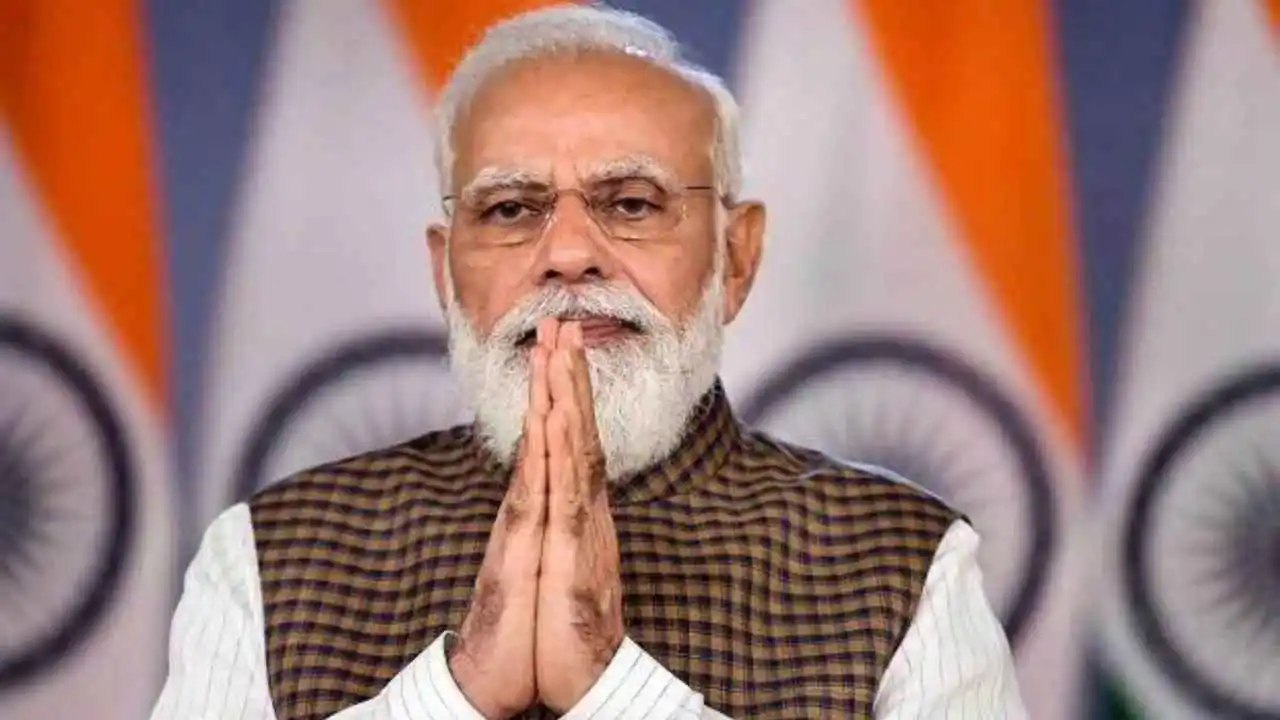
Prime Minister Narendra Modi on Saturday made a scathing attack on the Congress over national security and said the grand old party is a coward as its government used to weep on global platforms after terrorist attacks. The prime minister was addressing a rally in Jharkhand’s Palamu where he said the situation has changed under the BJP rule and Pakistan is now weeping and screaming for help.
Prime Minister Narendra Modi addressed a massive gathering in Palamu, Jharkhand, where he highlighted the achievements of his government and warned against the dangers posed by the Congress and its allies. Speaking to the enthusiastic crowd, PM Modi emphasized the significance of each vote and the transformative impact it can have on the nation.
He took a veiled dig at Rahul Gandhi and said Pakistani leaders, shaken by surgical strikes, are praying for shahzada to become the next Prime Minister. But a strong India wants a strong government. Prime Minister Narendra Modi’s attack on Rahul Gandhi comes days after a former minister in Imran Khan’s Cabinet in Pakistan, Chaudhry Fawad Hussain, shared a video which featured the Congress leader on his social media handle and praised him for attacking the BJP.
PM Modi trained his guns on the ruling alliance in Jharkhand and said corrupt JMM and Congress leaders have amassed huge wealth for their children. He further added that he did not own a home or even a bicycle. There is no blot of corruption on him in the past 25 years as chief minister and prime minister. Earlier while speaking in Sabarkantha, PM Modi said the BJP government has been consistently taking strong action against terrorism across the Pakistan border in comparison to weak governments in the past.
The Prime Minister said terrorists used to come to India and carry out attacks. The weak government during that time used to send dossiers. He further added that today’s new India does not send dossiers, it gives dose to terrorists.
-
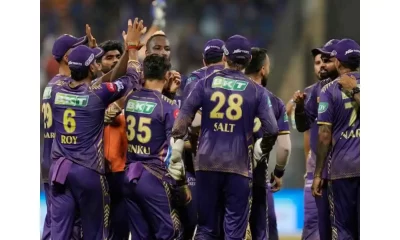
 Cricket news19 hours ago
Cricket news19 hours agoIPL 2024: Kolkata Knight Riders beat Mumbai Indians by 24 runs
-
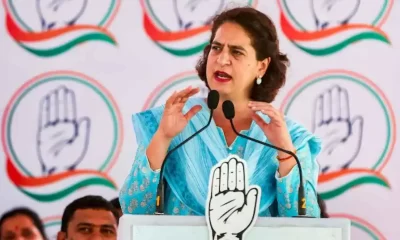
 2024 Lok Sabha Elections15 hours ago
2024 Lok Sabha Elections15 hours agoPriyanka Gandhi calls PM Modi a shahenshah who lives in castles and can never understand the plight of the common man
-
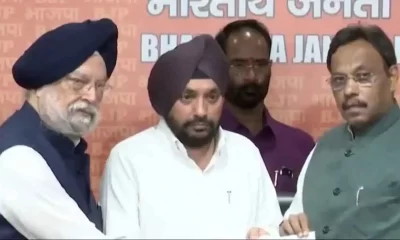
 2024 Lok Sabha Elections13 hours ago
2024 Lok Sabha Elections13 hours agoFormer Delhi Congress chief Arvinder Singh Lovely joins BJP
-
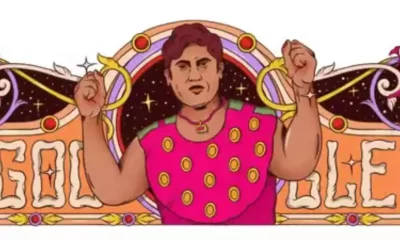
 LATEST SPORTS NEWS20 hours ago
LATEST SPORTS NEWS20 hours agoHamida Banu: Google Doodle celebrates India’s first woman wrestler
-
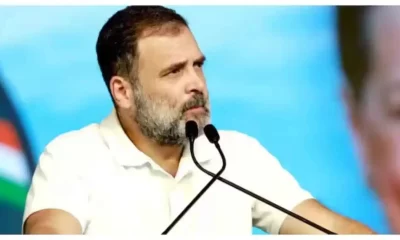
 India News17 hours ago
India News17 hours agoRahul Gandhi writes to Karnataka CM over Prajwal Revanna sex scandal, urges him to provide utmost assistance to the victims
-
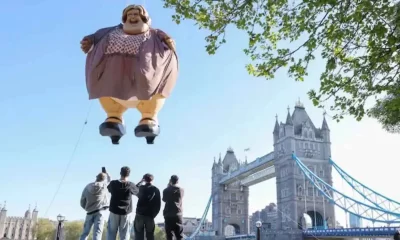
 Entertainment12 hours ago
Entertainment12 hours agoAunt Marge Dursley replica from Harry Potter floated in front of London’s Tower Bridge, video goes viral
-
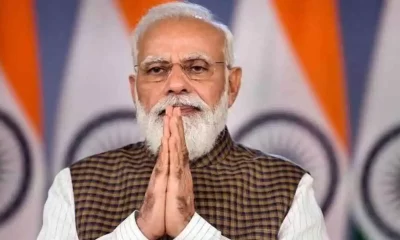
 2024 Lok Sabha Elections18 hours ago
2024 Lok Sabha Elections18 hours agoPM Modi raises national security pitch to attack Congress, says Pakistan now weeping and screaming for help under BJP rule
-
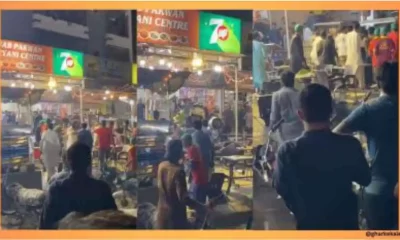
 Trending10 hours ago
Trending10 hours agoViolent clash takes place at Karachi dhaba, video goes viral





